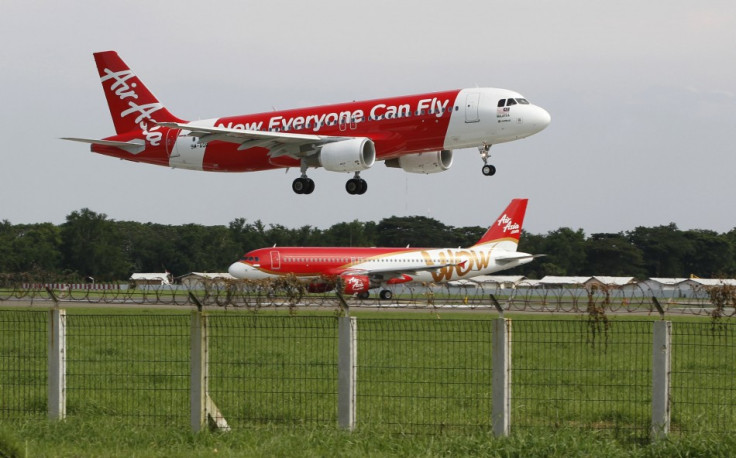India Approves AirAsia's $15 Million Joint Venture with Tata Group
The joint venture is named AirAsia India

Malaysia's low-cost carrier AirAsia has become the first foreign company to enter into India's aviation sector as its airline joint venture with the country's Tata Group won approval from the government.
Asia's largest low-cost carrier will invest 800m rupees ($15m, £10m) for the 49 percent stake in the joint venture. Tata Sons and Arun Bhatia's investment firm Telestra Tradeplace will take 30 percent and 21 percent, respectively.
India's Foreign Investment Promotion Board (FIPB) has approved the investment, according to Economic Affairs Secretary Arvind Mayaram and the airline would now have to get the necessary licences from the aviation authorities. Since the investment is less than 12bn rupees, it will not require clearance by the Cabinet Committee on Economic Affairs.
The joint venture named AirAsia India will be based in the South Indian city of Chennai, and is expected to start operations in mid-2013. AirAsia already operates flights into Indian cities including Bangalore, Kochi and Chennai.
The airline would focus on smaller Indian cities and South Indian metros in order to keep its costs low, and may avoid flying on the lucrative Mumbai-Delhi route, according to a report in an Indian daily, the Economic Times. It plans to offer fares as low as 1,000 rupees to lure passengers, but the country's high-cost structure would make it difficult to replicate its Southeast Asian model.
India's aviation industry has been suffering from rising fuel costs as well as intense price competition. Among major domestic low-carriers, only IndiGo made a profit in 2012.
In order to revive the industry with higher investments, India allowed foreign involvement in the aviation sector last year. Foreign companies can now own up to 49 percent of a local airline. Another domestic operator Jet Airways and Abu Dhabi-based Etihad Airways were reportedly in talks for a potential alliance. Etihad plans to buy a 24 percent stake in Jet for about $300m, according to media reports.
© Copyright IBTimes 2025. All rights reserved.






















